CEIN coordinates an international project!
The Bravely for Innovation project, coordinated by the University of Lodz's Center for Social Innovation, has received funding from the International Visegrad Fund.

The Bravely for Innovation project, coordinated by the University of Lodz's Center for Social Innovation, has received funding from the International Visegrad Fund.
![[Translate to English:] Logo czasopisma](/fileadmin/_processed_/1/6/csm_9q8rjnxu_400x400_836a7fe834.jpg)
An article by Dr. habil. Katarzyna Zajda, Professor at the University of Łódź, published in a prestigious journal by Taylor & Francis.
![[Translate to English:] Logo Seminarium Antropologii Feministycznej](/fileadmin/_processed_/1/7/csm_615817684_122100760857220262_724011915704881204_n_84e6c26f12.jpg)
We warmly invite you to a series of events as part of the Feminist Anthropology Seminar. The first event will take place on 26 January 2026 and will focus on the topic “Ethnography of Non-Monogamous…
![[Translate to English:] kartka świąteczna](/fileadmin/_processed_/2/f/csm_f7d3dba3-776a-401f-a097-7ac39bb1a587_29f367c8c3.jpg)
Dear Members and Friends of CEIN
![[Translate to English:] grafika przedstawiająca otwarte drzwi](/fileadmin/_processed_/7/2/csm_576911862_1153048763659595_1624307150351143583_n_1e935583b6.jpg)
Our expert texts gain recognition on leading Polish platforms. We are proud to present the latest article by dr hab. Katarzyna Zajda, Professor at the University of Łódź, published on the Social…
![[Translate to English:] grafika feminizm to weganizm](/fileadmin/_processed_/9/8/csm_ChatGPT_Image_19_lis_2025__20_01_26_df23bdb381.png)
The Interdisciplinary Gender Seminar invites you to a meeting with Karolina Skowron-Baka, which will take place on Thursday, November 13 at 4:45 p.m. in room E120 at the Faculty of Economics and…
The Center for Social Innovation at the University of Lodz is:
Tasks:
Coordinators:
Tasks:
Coordinator:
Tasks:
Coordinators:
Tasks:
Coordinators:
Tasks:
Coordinators:
Katarzyna Zajda, PhD, DSc, Associate Professor – Head of the Center for Social Innovation
A sociologist, researcher, and practitioner in collaboration with local action groups, local government units, and non-governmental organizations (NGOs).
Graduate of the School of Leaders of Non-Governmental Organizations and the School of Building Local Partnerships.
Scholarship recipient of the Heinrich Böll Foundation and the Ministry of Science and Higher Education.
Project manager of "Local Systems of Social Innovations in Rural Areas" (NCN, UMO-2015/19/D/HS6/00690).
Currently leads the implementation project: "Using Knowledge About Social Innovations by Rural NGOs."
Contributor to the project "Enhancing the Potential of Management and Quality Sciences Through Better Utilization of Polish Rural Capital" (University of Agriculture in Kraków).
Key Publications on Social Innovations:
Contact details:
e-mail: katarzyna.zajda@uni.lodz.pl
Faculty of Economics and Sociology
Agnieszka Murawska, PhD – Chairperson of the Scientific Council
Sociologist at the Department of Rural, Urban, and Social Change Sociology at the Faculty of Economics and Sociology, University of Lodz.
Research focus: civil society, social participation, NGOs, the common good, and local communities.
Practitioner in collaboration with NGOs.
Participated in projects funded by EFS, INTERREG EUROPE, INTERREG EUROPA CENTRALNA, Europa dla obywateli.
Involved in international projects such as CARE-SMART „Innovation Ecosystem for Smart Elderly Care”, „Supporting the Clean Energy Transition of Coal-Intensive Regions (DECARB), „Challenges of Regional Centres: Depopulation Control, Development-best practices” (DeCoDe).
Author of the book: Civic Engagement of the Residents of Łódź and Ivanovo – Structure and Determinants, University of Lodz Press (2020) and scientific articles.
Contact details:
e-mail: agnieszka.murawska@uni.lodz.pl
Sociologist at the Department of Applied Sociology and Social Work, University of Lodz.
Focus areas: sociology of social problems, sociology of deviance and social control, criminology, penal policy, and social work.
Researches barriers to social reintegration of former prisoners and biosocial criminology.
Co-author of the book Social Work with Individuals Leaving Resocialization Facilities and Their Families, Centrum Rozwoju Zasobów Ludzkich Press (2014) and various scientific articles a.o.: Informal Support Circles in the Social Reintegration Process of Former Prisoners from a Biographical Perspective, Annales Universitatis Paedagogicae Cracoviensis. 307, Studia Sociologica 11 (2) (2019), pp. [139]-163; Contemporary Aspects of the Rehabilitation of Offenders in Selected European Countries. Acta Universitatis Lodziensis. Folia Sociologica, (62), (2017), pp. 63–81. https://doi.org/10.18778/0208-600X.62.05
Contact details:
e-mail: andrzej.kacprzak@uni.lodz.pl
Faculty of Philosophy and History
Inga Kuźma, PhD, DSc, Associate Professor
She works at the Laboratory of Ethnography and Folklore Studies in the Institute of Ethnology and Cultural Anthropology at the Faculty of Philosophy and History of the University of Lodz.
She engages in activist and interventionist anthropology, including action research and participatory action research. She collaborates with non-governmental organizations both in research and practice.
Her academic interests particularly include herstory and women's issues, social inclusion and exclusion, and, more recently, decolonization and environmental humanities.
From 2017 to 2024, she served as the head of the Center for Social Innovations at the University of Lodz (CEIN).
She is the head and co-creator of the project "Applied Humanities for Development: From Innovation to Application (APHUM Base and AP Forum)" under the DIALOG program by the Ministry of Science and Higher Education (2018-2019).
She co-founded the Interdisciplinary Gender Seminar.
She is a board member of the Łódzki Szlak Kobiet Foundation and was the coordinator of the Lodz Partnership for Assistance in Situations of Exclusion and Homelessness (2014-2018).
Since 2021, she has been a member of the Council for Solving the Problem of Homelessness at the Office of the Mayor of Lodz.
She is the author of works including "Homes of the Homeless. Research on Crisis Situations," published by the University of Lodz Press (2015).
She is also a co-editor of collective works published in the University of Lodz series "Faces of Feminism".
Contact details:
e-mail: inga.kuzma@uni.lodz.pl
Lecturer at the Institute of Ethnology and Cultural Anthropology at the University of Lodz.
Her areas of focus include: social inclusion, social innovations, visual anthropology, grassroots urban movements, alternative communities, and gender studies.
She has participated in research projects in the areas of social inclusion, marginalized groups, social participation, and cooperation with the third sector.
President of the Polish Ethnological Society, Lodz Branch.
Contact details:
e-mail: alicja.piotrowska@uni.lodz.pl
Faculty of Educational Sciences
Assistant Professor in the Department of Educational Research at the Faculty of Educational Sciences, University of Łódź.
A social pedagogue and special education teacher specializing in the education of individuals with intellectual disabilities.
Her areas of interest include: methodology of social research, lifelong learning processes, educational needs of children with special developmental difficulties.
Key Publications:
Contact details:
e-mail: ewa.kos@uni.lodz.pl
Assistant at the Department of Educational Research at the Faculty of Educational Sciences, University of Łódź.
Doctoral student at the Doctoral School of Social Sciences, University of Lodz.
Her areas of interest include: methodology of educational research, data analysis and data mining, innovations in education.
Contact details:
e-mail: martyna.jarota@now.uni.lodz.pl
Faculty of Management
Janusz Reichel, PhD, DSc, Associate Professor
Employed in the Department of City and Regional Management at the Faculty of Management, University of Lodz.
His research interests include: social and environmental aspects of management, corporate social responsibility (CSR), business ethics, environmental management, issues related to sustainable development.
An expert serving on numerous competition committees: European Commission (including the 7th Framework Programme and the COST initiative), National Science Centre (NCN), Ministry of Labor and Social Policy (Citizen Initiatives Fund), Foundation for the Development of the Education System (including Leonardo da Vinci), Polish Agency for Enterprise Development (PARP), European CSR Award Scheme for Partnerships, Innovation, and Impact.
Project leader of the award-winning Leonardo da Vinci ToI project (2012–2013): "Homoresponsabilis in the Globalized World" (2011-1-PL1-LEO05-19895), which received an award in the EduInspiracje 2016 competition.
Selected Publications:
Contact details:
e-mail: janusz.reichel@uni.lodz.pl
Employed in the Department of Logistics at the Faculty of Management, University of Lodz.
Research interests: sustainable business models, including social entrepreneurship and value chains, business ethics, diversity management, circular economy (CE), risk management.
An educator, trainer, mediator, and enthusiast of modern teaching methods. She teaches postgraduate and MBA courses.
Actively involved in promoting and disseminating corporate social responsibility and sustainable development.
Associated with Faculty of Management, University of Lodz, Responsible Business Forum and Polish Institute for Human Rights and Business.
Collaborates with businesses and business-support institutions to foster sustainable transformation.
Expert Roles: Climate Leadership Program Expert, UNEP/Grid-Warsaw Center, collaborator with UN Global Compact Network Poland.
Member of the Scientific Council of the Polish Federation of Food Producers Employers' Association (since 2024).
Honored as one of the Women of Sustainable Development in Poland by Forbes Women in 2021.
Contact details:
e-mail: agata.rudnicka@uni.lodz.pl
Agnieszka Dziedziczak-Foltyn, PhD, DSc, Associate Professor
Employed in the Department of Applied Sociology and Social Work at the Faculty of Economics and Sociology at the University of Lodz.
Her interests include: sociology of higher education (personalized education – tutoring), higher education policy, higher education and science reform, public policy, and social policy.
She implements academic tutoring (Faculty Coordinator for Tutoring at the Faculty of Economics and Sociology, University of Lodz for the years 2024-2028).
Key publication achievements:
Contact details:
e-mail: agnieszka.dziedziczak@uni.lodz.pl
Social pedagogue employed at the Department of Social Pedagogy and Resocialization.
Researcher and educator involved in various research and teaching projects: 2024 – The Experience of Parenthood in the Context of Transculturality. Narratives of Parents from Polish-Ukrainian Families [IDUB; Interdisciplinary Research Grants]; 2022 – The Process of (Re)constructing the Identity of Parents of LGBT+ Individuals [NCN; Miniatura 5]; 2018 – Inclusive Education and Social Support to Tackle Inequalities in Society (ISOTIS) [Horizon 2020]; 2018/19, 2021/22 – Educational Module: Social Mediation [NCBiR].
Research Interests: Gender Studies, violence phenomena (domestic violence, bullying, human trafficking), social exclusion and empowerment processes, qualitative research methods (especially biographical research and critical discourse analysis).
Selected Publications:
Contact details:
e-mail: katarzyna.gajek@now.uni.lodz.pl
Assistant Professor at the Department of Applied Sociology and Social Work at the Institute of Sociology, Faculty of Economics and Sociology at the University of Lodz.
Her research interests focus on issues of poverty, social exclusion, and the field of social work and social assistance.
She has participated in research projects, including those within the framework of the RPO of the Lodz Voivodeship for 2014-2020 (task: Dependent Persons in the Lodz Voivodeship, 2018) and a project under the POKL titled "Becoming Entrepreneurial – an Educational Program with a Multimedia Teaching Package for Middle Schools" (2011-2014).
Subject matter expert within the EFS project ‘Creating and Developing Standards for Social Assistance and Integration Services’ (task: Development of a Social Work Standard within the framework of the Municipal Standard for Overcoming Homelessness, 2014).
Co-author of publications such as:
Contact details:
e-mail: malgorzata.potoczna@uni.lodz.pl
Monika Wojtczak, PhD
A social pedagogue and lecturer at the Academy of Humanities and Economics in Lodz.
Her areas of interest include mediation approaches and mediation practices, innovations in education, and issues related to social exclusion and homelessness.
Selected publications:
Contact details:
e-mail: monika.wojtczak@uni.lodz.pl
Artem Luhovyi, MA
A graduate of Spatial Management from the Faculty of Economics and Sociology at the University of Lodz.
Participant in educational, social, and research projects related to migration policy, urban revitalization, and socio-economic development.
In his spare time, he manages a beekeeping operation, educates young people about environmental protection, and engages in social activities.
Contact details:
e-mail: artem.luhovyi@outlook.com
Trainer, psychologist, and Design Thinking moderator.
Specializes in training on creativity, creative problem-solving, and Design Thinking.
Since 2016, a member of the Career Office team at the University of Łódź, responsible for workshop offerings.
In addition to his work at the University of Lodz, he collaborates with the Educational System Development Foundation, the Design Thinking Institute, and the SET Group, among others.
Contact details:
e-mail: jedrzej.szynkowski@uni.lodz.pl
Center of Social Innovation of the University of Lodz participates in the Bravely for Innovation project, which received financial support from the Visegrad Fund!
We invite you to follow the main website of the project: www.bravelyforinnovation.uni.lodz.pl
Project number: Visegrad Grant No. 22530248
Budget: 33,588 €
Funding: The project is co-financed by the governments of Czechia, Hungary, Poland and Slovakia through Visegrad Grants from the International Visegrad Fund. The mission of the fund is to advance ideas for sustainable regional cooperation in Central Europe.

https://www.visegradfund.org/
Duration: The project will run from March 1, 2026 to August 31, 2027 (18 months)
The primary issue of the Bravely for Innovation project is the limited implementation of social innovation in the V4 countries.
In this era of a risky society - characterized by rapid social change and increasingly multifaceted problems - the role of social innovations is increasing. The implementation of social innovations is mainly carried out by non-governmental organizations (NGOs) in partnership with other entities. Intersectoral cooperation in post-socialist V4 countries is hindered by a relatively low level of social capital and the insufficient resources of NGOs, including their limited human resources.
To address the limited implementation of social innovation in V4 countries and the lack of academic programs dedicated to social innovation, the Bravely for Innovation project will develop a 20-hour online course tailored to the real challenges faced by NGOs in the V4 region.
Achieving the main goal of the project will be possible through the following actions:
The project's uniqueness stems from several factors.
In the V4 countries, such a broad group of activists interested in implementing social innovations does not yet exist. The creation of a network of cooperation increases the chances of implementing innovations in local communities.
This education will equip them with the knowledge, competencies, and skills necessary to implement social innovations in NGOs. This will be achieved through a unique online training course.
A detailed diagnosis of these needs is planned.
Online guides will also be produced describing the training of social innovators in connection with the activities of V4 NGOs in implementing social innovations.
The Forum will serve to integrate NGOs from theV4, social innovators, and researchers dealing with the implementation of social innovations. It will also present an innovative training program for social innovators, and students will show prototypes of social innovations.
Center of Social Innovation of the University of Lodz
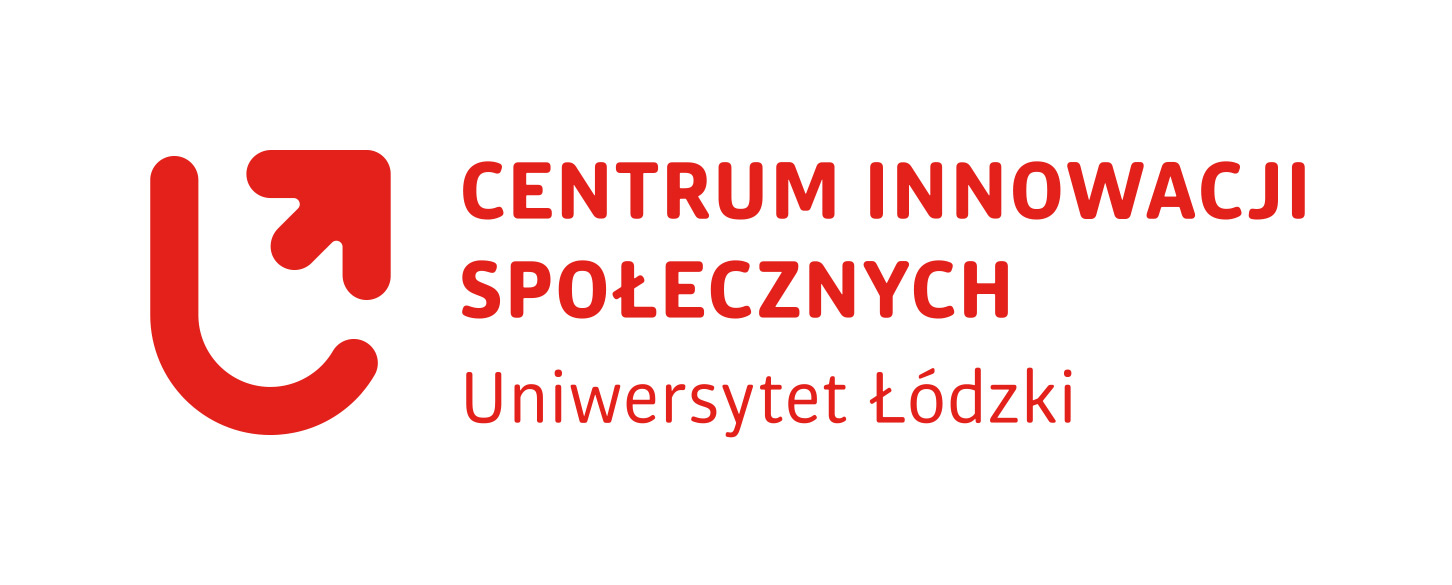
Contact details: Katarzyna Zajda
E-mail: katarzyna.zajda@uni.lodz.pl
Slovak University of Agriculture in Nitra
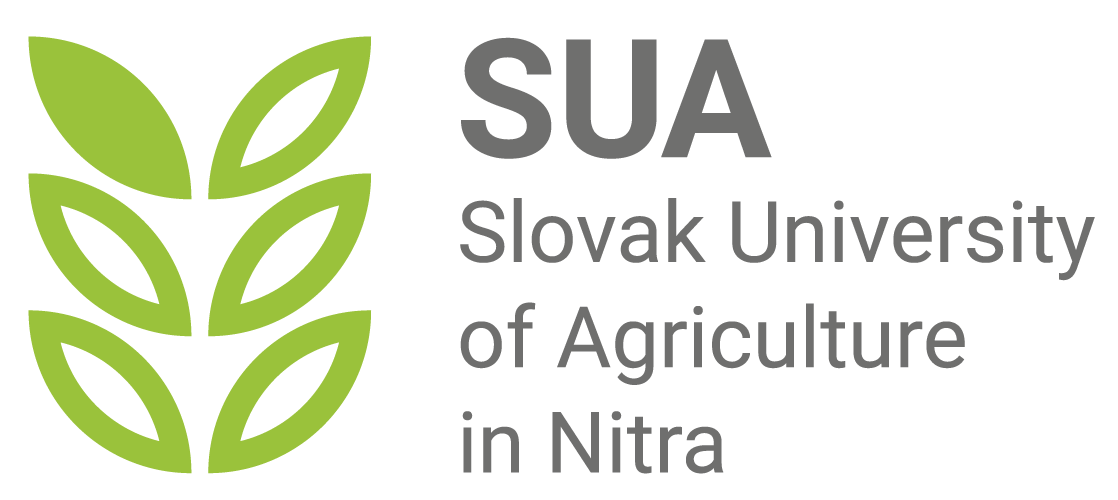
Contact details: Danka Moravčíková
E-mail: danka.moravcikova@uniag.sk
Institute of Applied Social Sciences of Faculty of Humanities and Social Sciences (University of Miskolc)

Contact details: Kinga Szabó-Tóth
E-mail: kinga.szabo.toth@uni-miskolc.hu
Prague University of Economics and Business:

1. Faculty of Finance and Accounting
Contact details: Katarína Krpálková Krelová
E-mail: katarina.krelova@vse.cz
2. Faculty of Management
Contact details: Kateřina Berková
E-mail: katerina.berkova@vse.cz
The Bravely for Innovation project was designed with care for the environment, in accordance with the principles of sustainable development included in the Visegrad Fund Green Guidelines.
The project includes activities that help reduce the project's environmental impact, such as:
Center of Social Innovation of the University of Lodz:
E-mail: cein@uni.lodz.pl
Coordinator of the Bravely for Innovation project:
Katarzyna Zajda
E-mail: katarzyna.zajda@uni.lodz.pl
Project Title: Using knowledge about social innovations by rural non-governmental organizations
Source of Funding: University of Lodz, IDUB, MPK: 2122528000
Project goal: To promote and apply knowledge in practice by rural non-governmental organizations regarding the process of implementing social innovations.
Tasks:
Results so far:
Additionally, in collaboration with LAG 'Zielone Sioło', local selection criteria for operations were developed, which are now applied in all competitions announced by LGD during the 2023-2027 programming period.
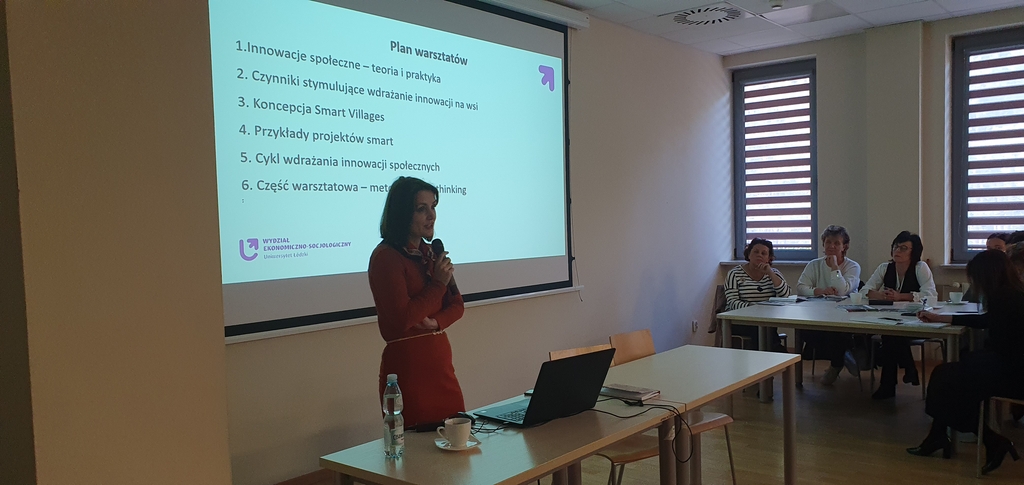
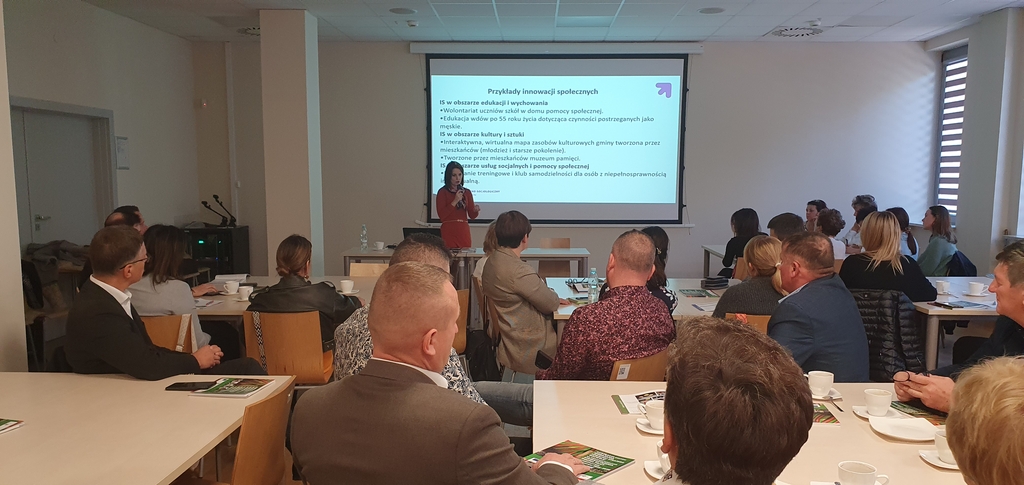
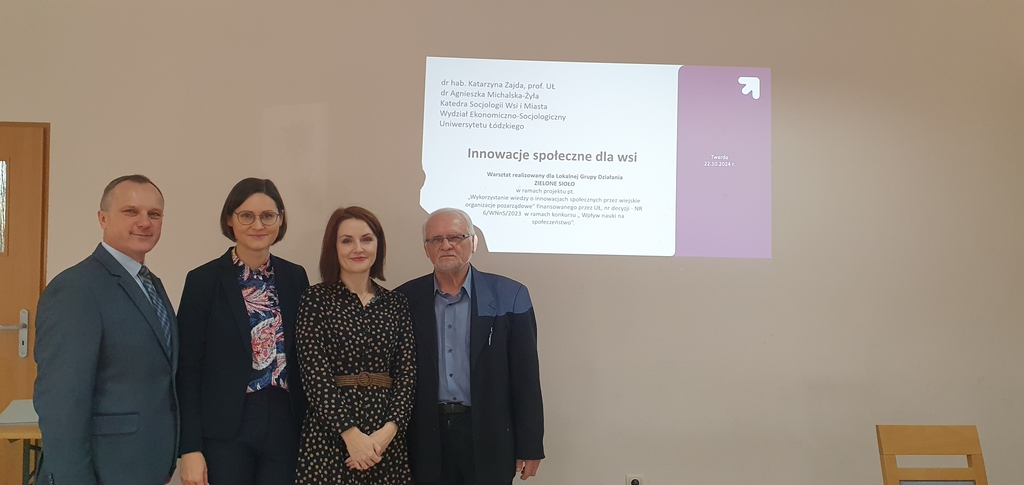
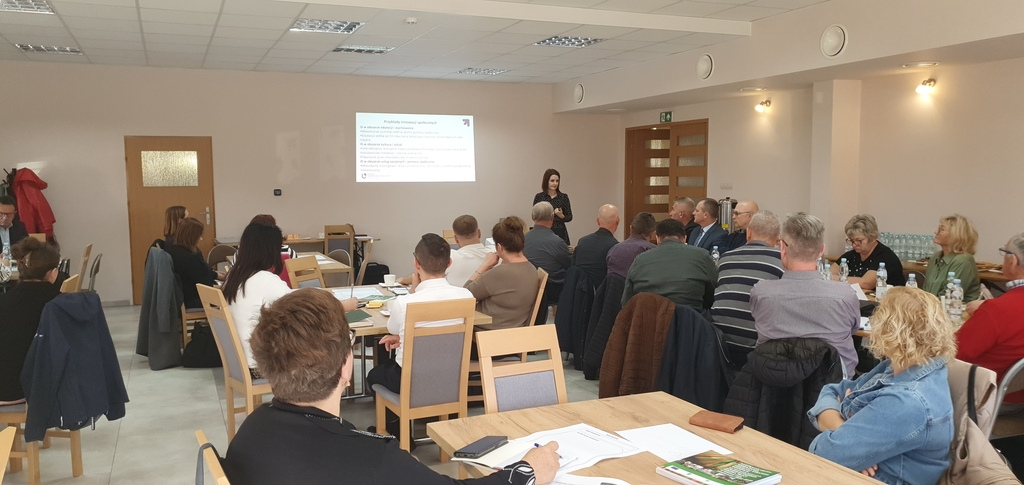
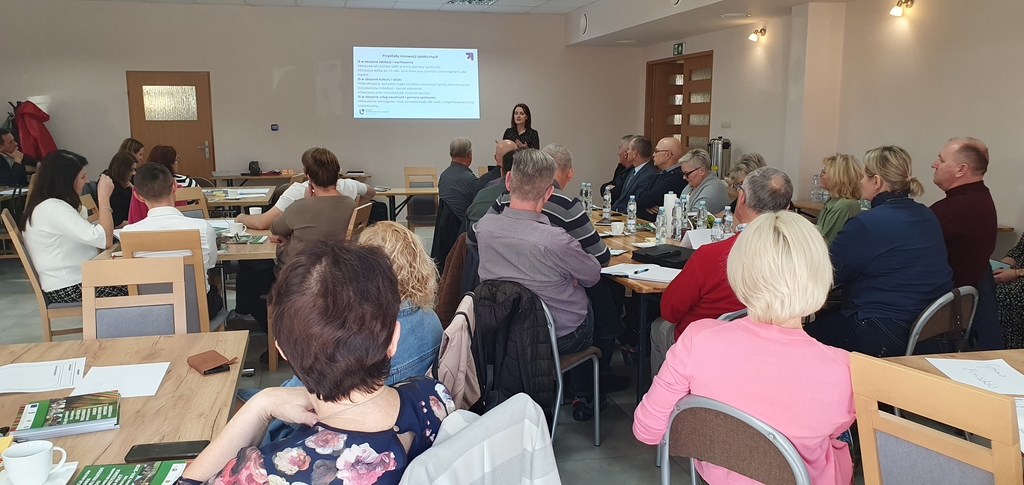
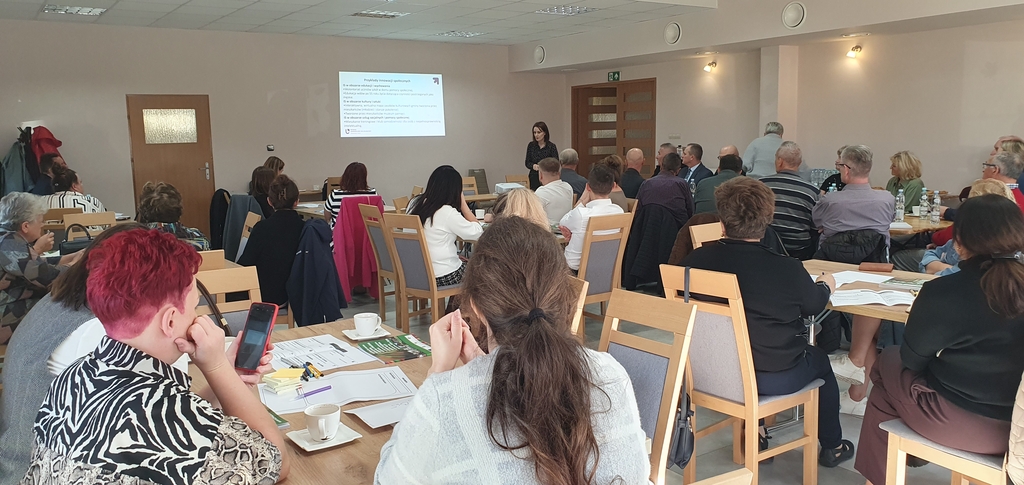
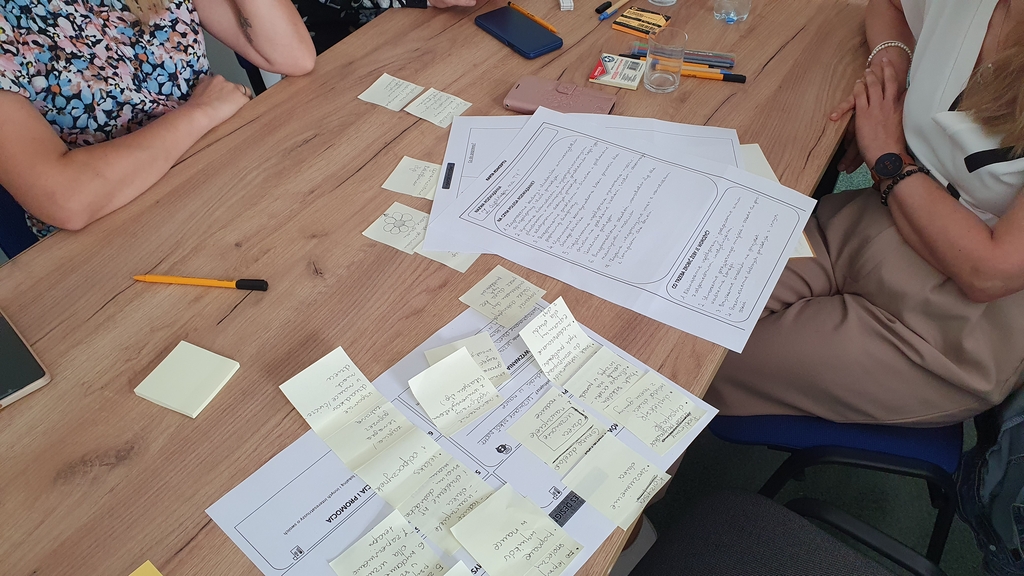
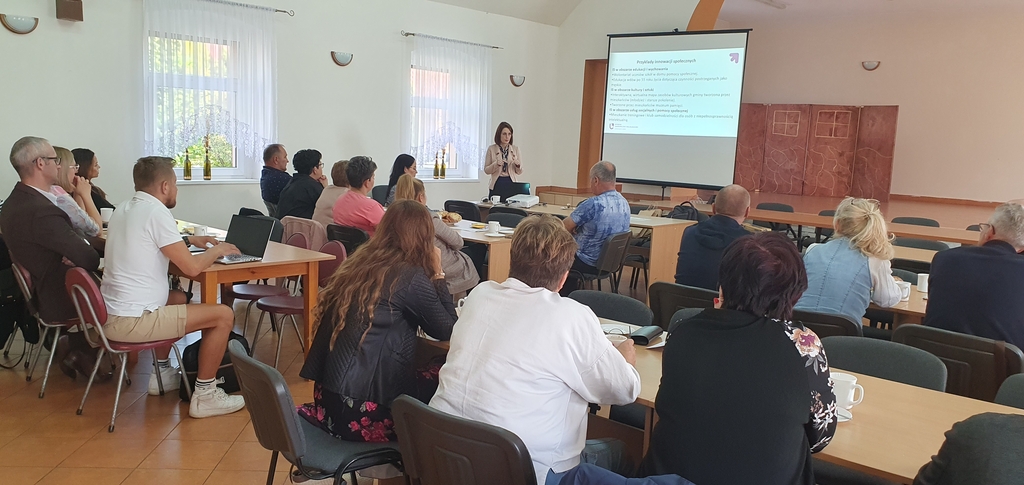
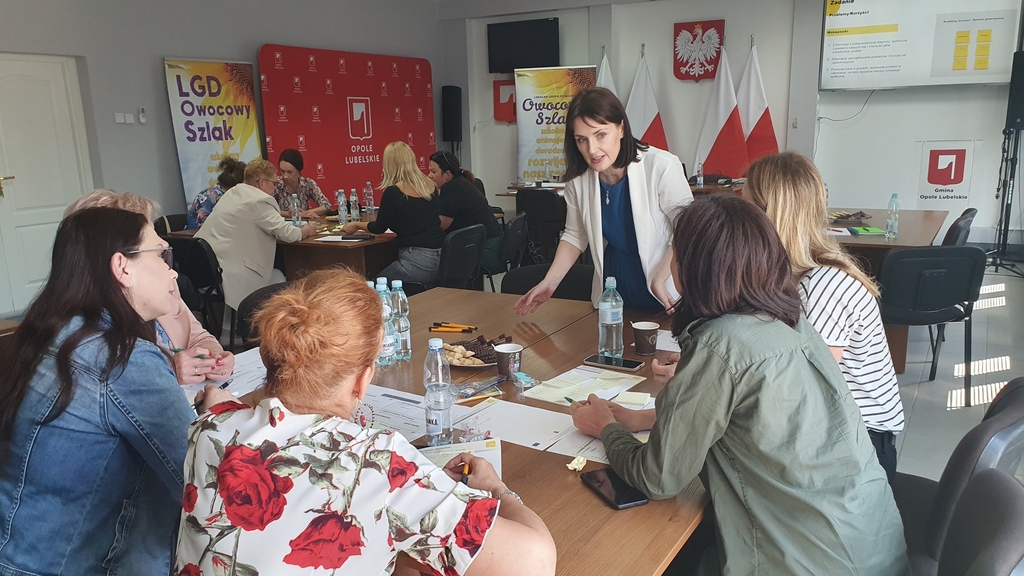
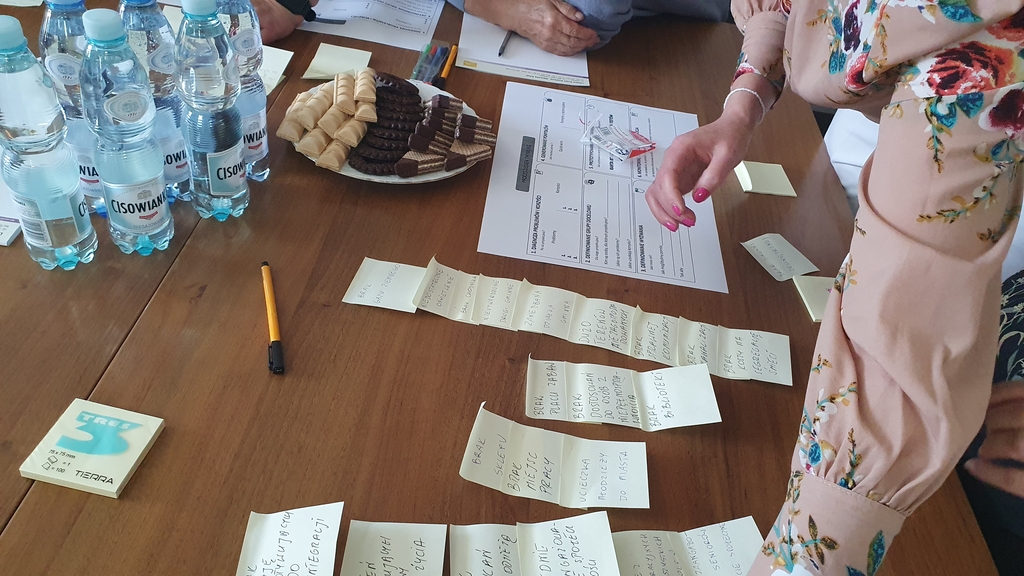
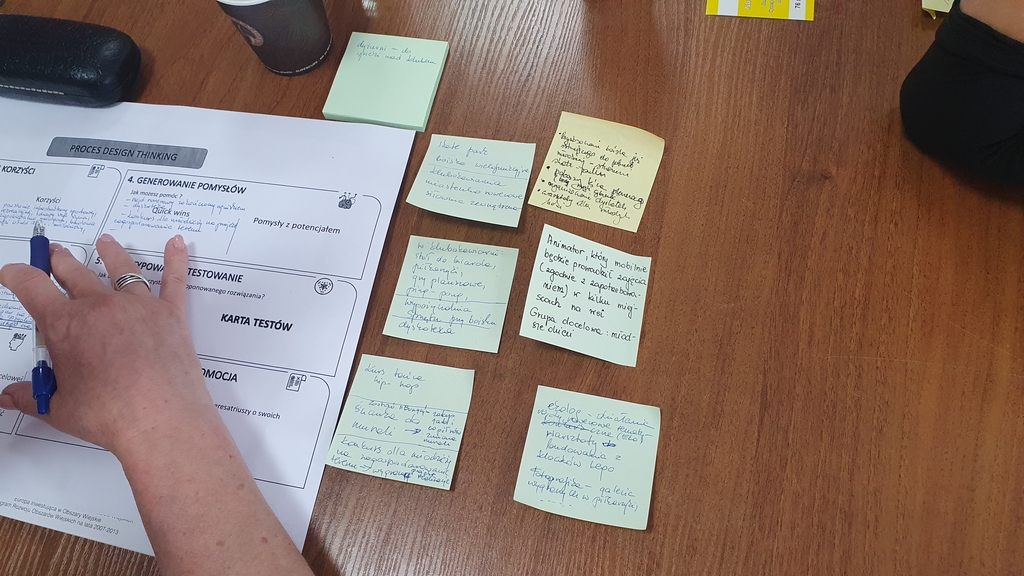
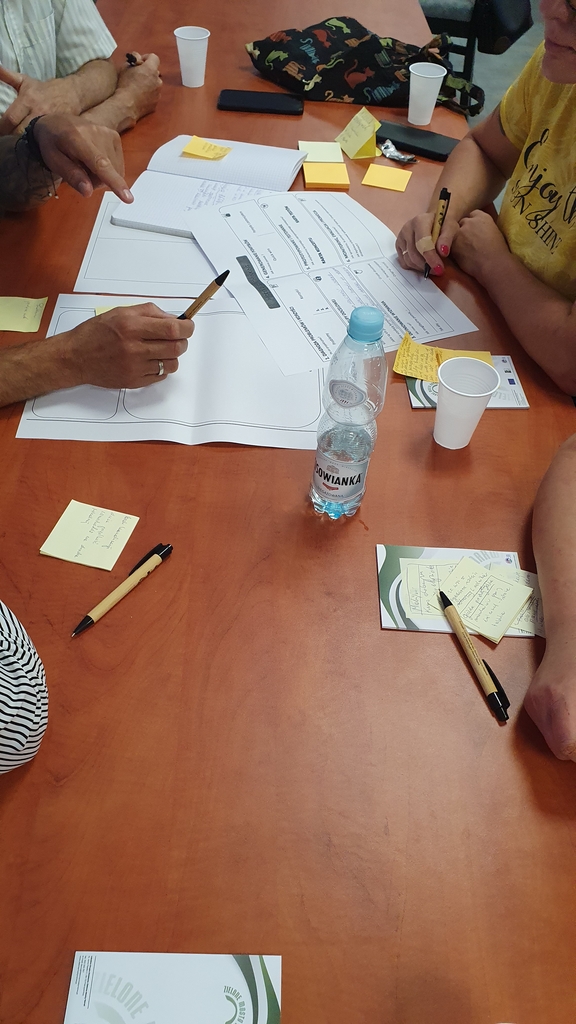
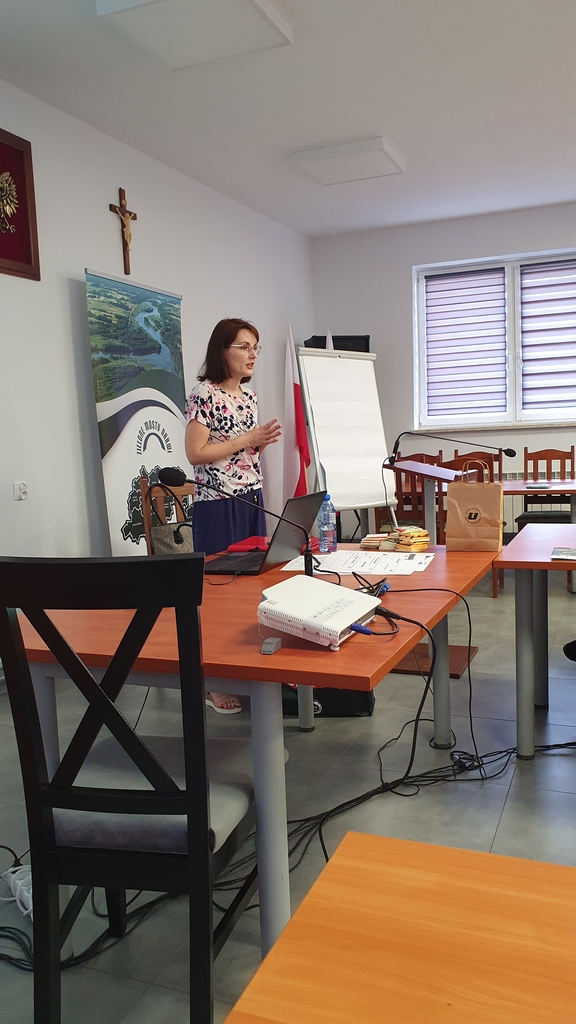
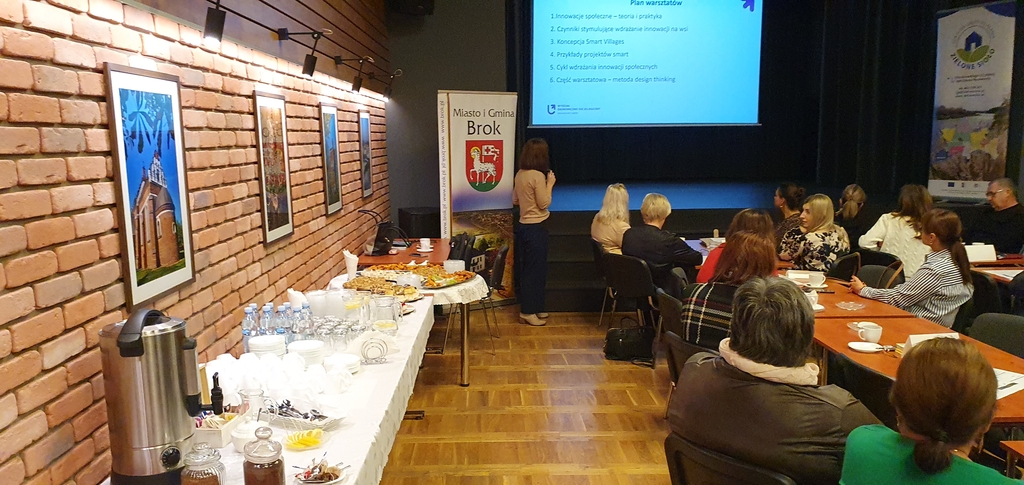
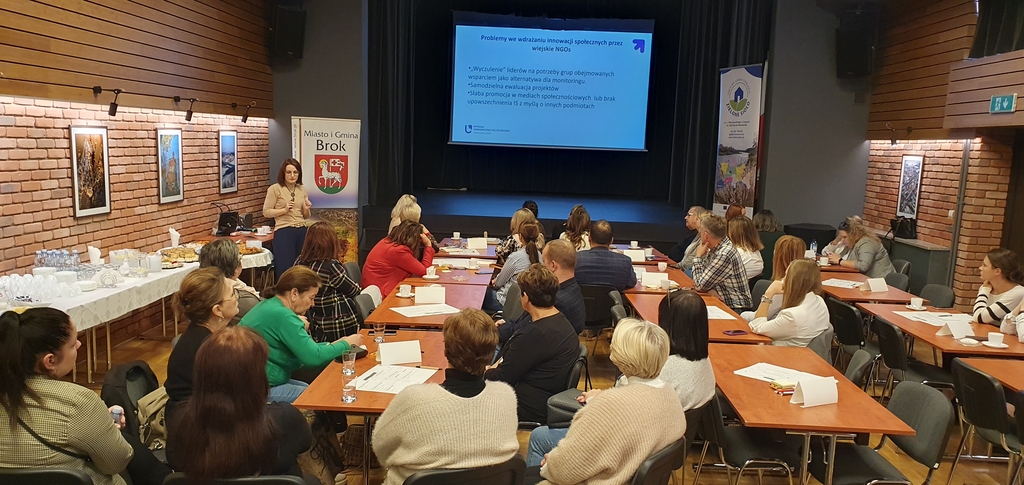
Project number: 101146693
Budget: 142,415.00 €
Funding: The project, funded by the Citizens, Equality, Rights and Values (CERV) programme, is in line with the EU’s objectives of increasing democratic participation and active citizenship.
Duration: October 2024 – September 2026 (24 months)
Objective: The CIVIC INCUBATOR (CIVIC_IN) project aims to promote and protect European values by empowering informal civil society groups and active citizens in Europe. By promoting democratic engagement and social inclusion, the project aims to create a support framework for these groups to increase their influence at local and EU level. By promoting cooperation and capacity building, CIVIC_IN envisages a future where informal groups play a key role in shaping a citizen-centred Europe.
The project addresses the challenges faced by informal groups and active citizens in their pursuit of social change. Based on the values set out in the Charter of Fundamental Rights of the European Union, CIVIC_IN promotes freedom, the right to association and the principles of European citizenship. It aims to provide innovative solutions and frameworks to support these groups in their critical work in communities across the EU.
As part of the project:
1. We conduct research to map the challenges and opportunities for informal groups.
2. We organize Ideathons to inspire innovative solutions and support creativity.
3. We facilitate the exchange of experiences between non-governmental organizations and informal groups.
4. We offer an incubation package to strengthen the operational capacity of grassroots initiatives.
5. We initiate debates and propose policy recommendations to amplify the voice of active citizens.
6. We disseminate the project results to ensure the sustainable impact of the entire project at local, national and international levels
For whom?
Main target groups: Informal civil society groups, active citizens and organisations.
Indirect beneficiaries: Communities, local authorities and other stakeholders
We are implementing the project in partnership:
Centre for Social and Economic Investments (Poland) – Project Coordinator
University of Lodz - Center for Social Innovation (Poland) UNILODZ
Alternativ Közösségek Egyesülete (Hungary) ACA
Solidaridad Sin Fronteras (Spain) SSF
Fundatia PACT (Romania) PACT
IASIS (Greece) IASIS
Project details available at: https://civic-in.eu/
Contact:
For more information: kontakt@cise.org.pl
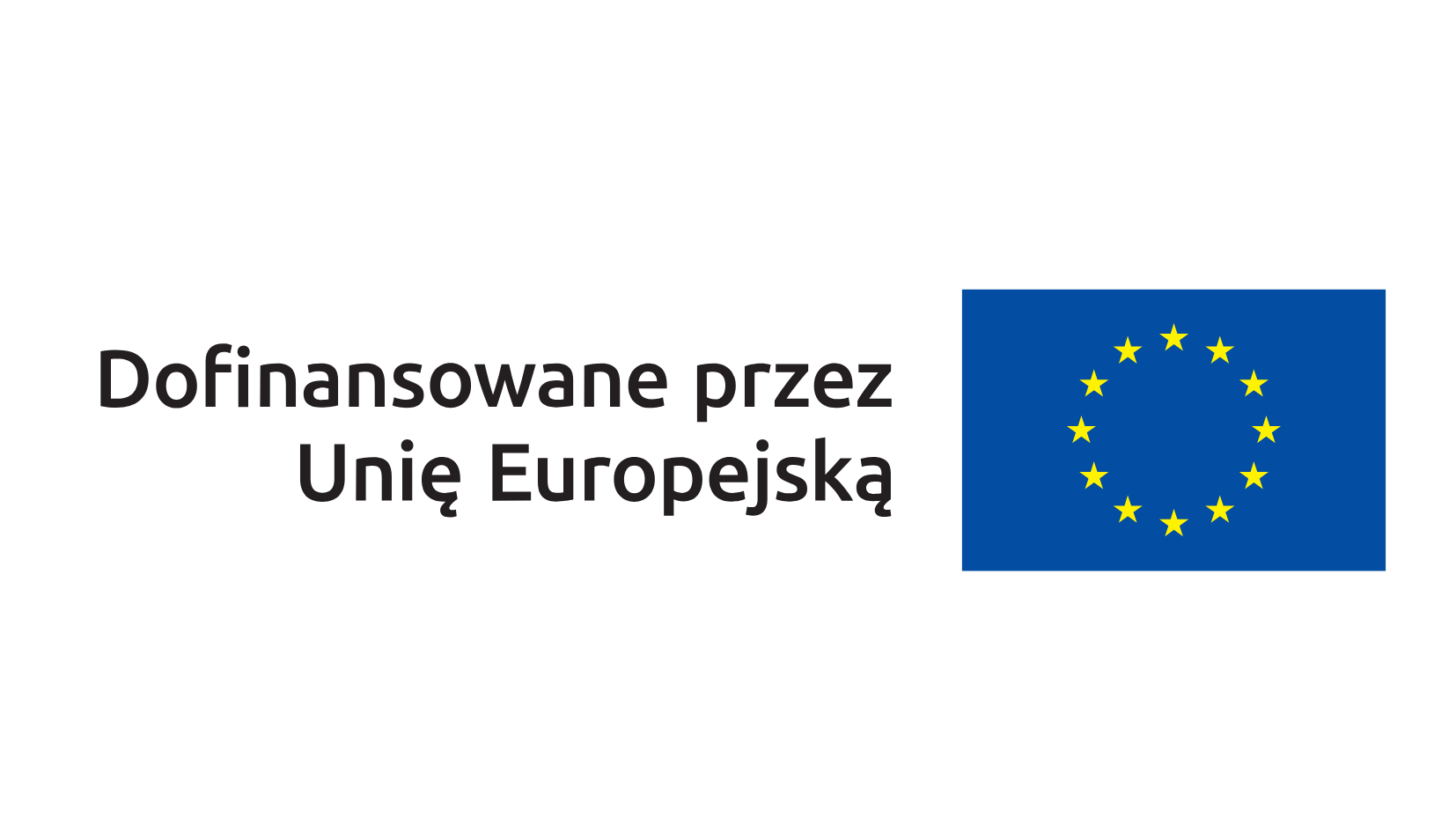
Anyone interested in active participation in the activities of the University of Lodz Center of Social Innovations can join it – researchers representing various research perspectives, doctoral students, students, representatives of business, non-governmental organisations, local government units, social activists. You just need to report your willingness to join activities of the unit to the Head, Members of the Scientific Council or other Members of the Center or receive an invitation from them.
Membership in the Center is voluntary. Members have the right to express their own opinions and views that do not conform to the principles of social coexistence.
The University of Lodz Center of Social Innovations connects the world of science with the social, cultural and business environment, including non-governmental organisations. Its aim is to critically and reliably describe social life and difficulties experienced by social groups, as well as to search for and disseminate innovative social solutions that are to respond to social needs; supporting civic participation; implementation of the idea of the university's social responsibility.
We offer non-obligatory internships.
Join us, if:
How can you act?
You can act by performing selected activities that are in line with your interests and are:
Highly appreciated:
What will you gain?
How to apply:
Please send your CV with the clause on the protection of personal data to the following address: malgorzata.kostrzynska@uni.lodz.pl with a note: "Recruitment – non-obligatory internships".
Clause on the protection of personal data: "I consent to the processing of my personal data included in the job offer for the purposes of the recruitment process in accordance with the Act of 29 August 1997 on the Protection of Personal Data, consolidated text: Journal of Laws of (Dz.U.) 2002, No. 101, item 926 as amended"
Thank you for submitting the application, at the same time we would like to inform you that we will contact only selected people.
Rules
of the University of Lodz Center of Social Innovations
§1
General provisions
§ 2
Goals and tasks of the Center and the forms of their implementation
1. The goals of the Center are:
a. to respond to the demand of both science and economy, which is social innovation, understood as non-standard, innovative solutions, being a response to real social challenges and problems;
b. to connect the world of science with the social, cultural and business environment; to create a space for communication, exchange of experiences, where representatives of non-governmental organisations, local government officials, business representatives meet with scientists and students to establish cooperation in the form of implemented projects;
c. to critically and reliably describe social life and difficulties that affect particular social groups, as well as to search for and disseminate innovative social solutions, which are to respond to social needs - the solution are based on active civic participation (not excluding the groups of interested parties who are affected by the problem);
d. to carry out activities leading to the development and implementation of innovative methods, solutions, tools and items helpful in solving social problems;;
e. to popularise and promote social innovations, to introduce them to the public debate;
f. to support civic participation, understood as involving citizens in decision-making processes, participating in discussions and decisions on matters important to them;
g. to implement the idea of the university's social responsibility;
h. to promote the University of Lodz in the local environment.
2. The main task of the Center is to take up cooperation between researchers representing various disciplines of the humanities and social sciences and representatives of the external environment in the implementation of interdisciplinary scientific and research projects aimed at developing and implementing innovative solutions for social development/or for solving important social problems (social innovations).
3. The tasks of the Center are carried out in four areas:
a. Research:
b. Educatin:
c. Economy:
d. Society:
§ 3
Scientific Council of the Center
1. Members of the Scientific Council of the Center:
a. The Scientific Council consists of up to two representatives of each of the Faculties being members of the Center. The composition of the Scientific Council of the 1st term is composed of representatives of the Faculties initiating its establishment.
b. The composition of the Scientific Council is supplemented with representatives of the organisational unit joining the cooperation with the Center (up to two each time, and also in a situation where, with the end of the term of office, a representative of the Faculty has expressed a desire to leave the composition of the Council).
c. New members of the Scientific Council are appointed for the term of office of the elected bodies of the University of Lodz.
d. Members of the Scientific Council can perform their functions for a period longer than one term.
e. With the end of the term of office, representatives of the Scientific Council may express their willingness to continue or leave the composition of the Council.
f. A candidate for a Member of the Scientific Council of the Center is recommended by another Council Member. A candidate for the Council Member is accepted by the Head of the Center pursuant to the resolution of the Scientific Council.
g. In the case of new Faculties of the University of Lodz joining the Center, representatives of these Faculties may join the Scientific Council.
h. The Scientific Council of the Center shall elect, by a simple majority of votes, the Chairperson who, in the absence of the Center Head, performs their duties.
2. The scope of responsibilities of the Scientific Council:
a. The Scientific Council supervises the activities of the Head of the Center; gives opinions on the annual reports presented by the Head.
b. It provides opinions on projects and activities submitted by all Members of the Center.
c. It exercises substantive supervision over working teams.
d. It cares for the high quality and substantive level of the activities undertaken within the Center.
e. It adopts the internal regulations of the Center, in line with the statute.
f. Members of the Scientific Council are required to be present at the meetings resulting from the Centre's meeting and work schedule for a given year (meetings concerning matters important for the functioning of the Center, i.e., the election of the Head, approval of new Members, reviewing projects) Such meetings require the presence of at least half of the members of the Scientific Council).
§ 4
Head of the Center
1. The Head of the Center is selected from among the members of the Scientific Council of the Center by voting with a simple majority of votes. The Head is not a member of the Scientific Council.
a. The Head is appointed for the term of office of the elected bodies of the University of Lodz.
b. The Head can perform their function for a period longer than one term.
2. The scope of rights and responsibilities of the Head of the Center
a. The Head of the Center along with the Scientific Council establish the work and meeting schedule for a given calendar year, with the possibility of modifying these plans.
b. Together with an administrative employee of the Center, the Head documents the meetings and works as well as other activities of the Center; notifies Members of the Centre's about the meetings and activities, coordinates contacts with the University of Lodz and other organisations; represents the Center.
c. The Head is supervised by the Scientific Council of the Center and presents to the Council an annual report on the Centre's activities in January of the following year, which is also sent to the attention of all Center Members.
d. The Head submits a report approved by the Scientific Council to the relevant Vice-Rector of the University of Lodz (in February).
e. The Head convenes the meetings of the Council and meetings of all Center Members according to the agreed work schedule and, if necessary, also submitted by ordinary Members of the Center or Members of the Scientific Council.
f. The Head makes the final decision regarding the implementation of specific social projects.
g. The Head supervises the working teams.
h. The Head is obliged to be present at the meetings during which decisions important for the Center are made, for which the Head is responsible.
i. The Head represents the Center during meetings with the university authorities and outside the university.
§ 5
Ordinary Members
1. A person interested in active participation in activities of the Center, academics representing various research perspectives and practical experiences, doctoral students, students, representatives of business, non-governmental organisations, local government units, and social activists may become an ordinary member of the Center.
a. A Candidate may apply to the Head and the Scientific Council with a request to be included in the membership of the Center, thanks to the recommendation of the Head, the Scientific Council or another Member of the Center, as well as as a result of an invitation from the Head the Scientific Council and another Member – then they complete a declaration, which is submitted in paper form to the Head or member of the Scientific Council.
b. The Candidate's candidature is subject to voting which the Head, the Scientific Council and other ordinary members participate in. Acceptance is by simple majority vote.
c. Membership in the Center may terminate as a result of:
2. The scope of rights and obligations of ordinary members
a. They can be appointed to the Scientific Council.
b. Ordinary members have the right to:
c. Ordinary members are obliged to:
§ 6
Working teams
1. In order to implement project activities, the Head, the Scientific Council of the Center as well as ordinary members may create separate project working teams, each time represented by team coordinators, elected by a majority of votes of a given team.
a. Working teams deal with the implementation of specific tasks and projects carried out by the Center.
b. Substantive supervision over the activities planned by the working teams is exercised by the Head of the Center and Scientific Council.
c. Team coordinators submit reports on their activities to the Head at the end of the calendar year, according to the template adopted by the Scientific Council of the Center.
d. Working teams determine the work schedule independently, including the schedule of meetings.
e. Persons who are not members of the Center may cooperate as part of the teams.
§ 7
Administrative employee
1. The scope of responsibilities of the administrative employee of the Center:
a. They identify the possibilities of obtaining funds from various sources for the implementation of the projects of the Center and help in the preparation of projects and their submission; they deal with the administration of projects.
b. They document the meetings and works, and other activities of the Center together with the Head of the Center.
c. They are in charge of the Center's correspondence.
d. They take care of the website and social media informing about activities of the Centre and other forms of promoting the Center's activities.
e. An administrative employee is obliged to be present at the meetings of the Center resulting from the schedule of meetings and work of the Center adopted for a given year.
§8
Funding rules
1.The activity of the Center of Social Innovations of the University of Lodz is financed from national and foreign grants, European funds, funds obtained from other external sources and from statutory funds at the disposal of the Heads of organisational units making up the Center and units participating in the work of the Center.
2. The Center applies for the appointment of a full-time job for an administrative employee, which would be financed by the Rector of the University of Lodz for a period of one year.
Center of Social Innovations
University of Lodz
The Biedermann’s Palace
ul. Franciszkańska 1/5, room 15
91-431 Lodz
e-mail: cein@uni.lodz.pl
contact with the media: agata.rudnicka@uni.lodz.pl